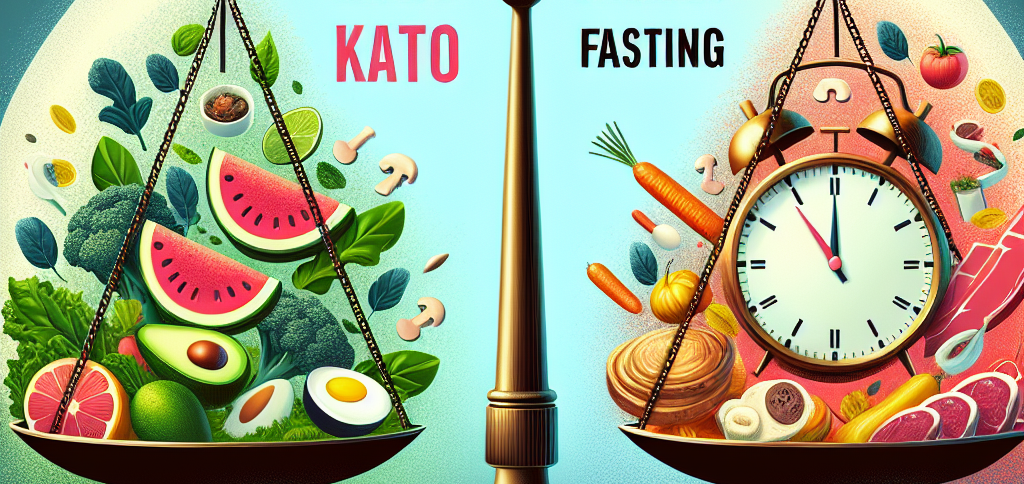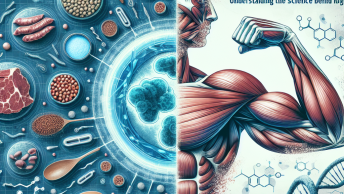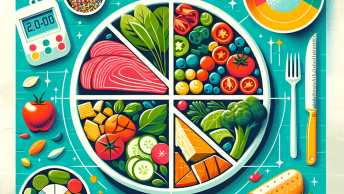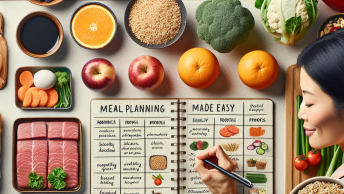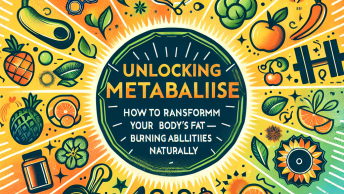Embarking on a journey to lose fat can be overwhelming, especially with the myriad of diets and strategies available. The key to successful fat loss lies not just in what you eat, but also in your overall approach to lifestyle changes, mindset, and long-term sustainability. Below are ten effective strategies that can help you create and maintain a fat loss diet, allowing you to achieve your goals safely and healthily.
1. Prioritize Protein Intake
Protein is an essential macronutrient that plays a critical role in fat loss. High-protein foods help you feel full longer, reduce appetite, and support muscle preservation while on a calorie deficit. Aim to include lean protein sources in each meal, such as chicken, fish, tofu, legumes, or low-fat dairy. This approach helps to increase the thermic effect of food (TEF), which is the energy expended during digestion.
2. Incorporate Healthy Fats
While it may sound counterintuitive, incorporating healthy fats into your diet can actually assist in fat loss. Foods like avocados, nuts, seeds, and olive oil offer essential fatty acids that are satiating and beneficial for heart health. In moderation, these fats can improve feelings of fullness and help regulate hormones related to hunger.
3. Fill Up on Fiber
Fiber-rich foods are excellent for weight loss as they take longer to digest, keeping you satisfied and reducing the likelihood of snacking. Incorporate fruits, vegetables, whole grains, and legumes into your meals to boost fiber intake. Not only will this keep hunger at bay, but it can also improve digestive health.
4. Stay Hydrated
Staying adequately hydrated is crucial for overall health and can significantly influence fat loss. Drinking plenty of water helps to increase metabolism and makes your body more efficient at burning calories. Sometimes, our bodies mistake thirst for hunger, leading to unnecessary snacking. Aim for at least eight glasses of water per day, and consider starting with a glass before meals to aid digestion and control appetite.
5. Create a Caloric Deficit
For fat loss, creating a caloric deficit is essential. This means consuming fewer calories than your body requires to maintain its current weight. To achieve this, track your daily caloric intake and see where you can cut back without feeling deprived. A moderate deficit of 500-1000 calories per day can lead to a sustainable weight loss of about 1-2 pounds per week.
6. Mind Your Portions
Even healthy foods can contribute to weight gain if consumed in large quantities. Paying attention to portion sizes is vital when following a fat loss diet. Consider using smaller plates, measuring your food, or counting calories to ensure you’re eating appropriate servings. Additionally, try to avoid eating from the package, as it’s easy to lose track of how much you consume.
7. Plan Your Meals
Meal planning is a powerful tool in your fat loss arsenal. By preparing your meals in advance, you can avoid impulse eating and ensure that you stick to your dietary goals. Plan a week’s worth of meals that incorporate a balance of protein, healthy fats, and fiber-rich carbohydrates. This not only saves time but also promotes adherence to your fat loss diet.
8. Be Mindful of Sugary Foods
Added sugars contribute to excess caloric intake and can hinder your fat loss efforts. Pay close attention to hidden sugars in processed foods, sauces, and drinks. Opt for whole, unprocessed foods, and choose natural sweeteners when needed. Your body will thank you as you reduce cravings and maintain stable energy levels throughout the day.
9. Find Your Support System
Losing fat can be a challenging journey, and having a support system can significantly improve your chances of success. Engage friends, family, or weight-loss groups who share similar goals and create an environment that keeps you motivated. Whether it’s sharing recipe ideas or discussing challenges, a supportive community can make the process more enjoyable and easier to stick to.
10. Educate Yourself Continually
Knowledge is empowerment. Continuously educate yourself about nutrition, fat loss strategies, and healthy habits. Consider leveraging resources such as online courses, dietitian consultations, or comprehensive meal plans designed by professionals. For example, you can Click Here to learn more about effective fat loss techniques and resources that align with your goals.
Conclusion
Embarking on a fat loss journey requires dedication and a strategic approach. By incorporating these ten effective strategies into your diet and lifestyle, you can achieve sustainable fat loss while also fostering healthy habits for the long term. Remember, patience and consistency are crucial in this process. Celebrate small victories along the way, and don’t hesitate to reach out for support when needed. Your path to a healthier, fitter you begins with informed choices and a commitment to improvement.
